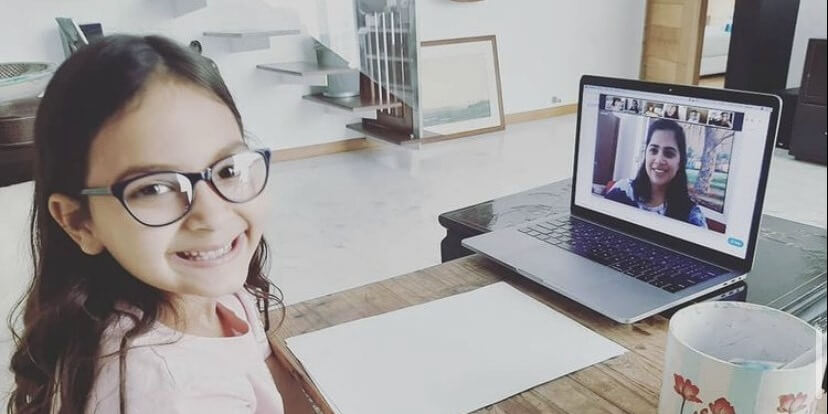Women-led Pakistani EdTech eyes growth in UAE with new investment
Technology. Digitalization. Digital dividends. The COVID-19 pandemic in 2020 transformed these buzzwords into reality for many businesses across the world. For one Pakistani start-up, moving its business online means rapid international expansion.
Karachi-based EdTech Dot & Line on Monday (Dec 4) said it received a strategic investment from UAE-based Falcon Network, an early-stage investor across emerging markets. The value of the investment was not disclosed.
Dot & Line is a private tuition platform that offers after-school education in Math, English, and Urdu. Falcon Network said the platform’s tutors are able to show “a 40% increase in student learning outcomes within four months, while earning PKR 24,000 ($150) to PKR 100,000 ($620) every month.”
Dot & Line was first given a leg-up in 2019 with a six-figure dollar seed investment led by local VC firm Sarmayacar. The VC’s Pakistan-focused fund was supported by a $2.5 million investment from two World Bank Group organisations to support high impact women-owned or managed tech start-ups.
In early 2020 when COVID-19 hit, Dot & Line had to stop in-person classes and switch to an online teaching program. While the curriculum remained the same, the knowledge transfer mechanism changed.
“The challenge was to train the teachers how to engage the students via the screen,” co-founder Lina Ahmed told Salaam Gateway last month. “We worked on using expressions and props, in particular with the teachers tutoring younger children.”
By going online, Dot & Line’s reach expanded through the addition of international clients and the young business experienced a burst of growth.
“30% of our students currently are international, usually the children from Pakistani expats, mainly working in the Middle East,” said Ahmed.
Dot & Line’s growth mirrors survey findings from Wamda and Arabnet published in May last year. The poll questioned 247 MENA start-ups about the COVID-19 impact on the ecosystem and found that 47% of EdTech start-ups saw a positive revenue impact, with 6.7% of them saying they were expanding to new markets, and another 6.7% were struggling to meet new demand.
Leveraging the momentum from 2020, Ahmed said Dot & Line plans to grow the student number to 30,000. The company has taught over 4,000 students across Pakistan, UAE, Saudi Arabia, Australia, Canada, and the UK since it launched in 2018, Falcon Network said in its statement on Monday.
The plan is also to grow teaching partners to 5,000. The business currently employs 15 team members who mainly look after the technology through which over 300 teacher partners are managed and matched with students.
All tutors working with Dot & Line are women from Karachi, Lahore, and Islamabad.
“It's very common in Pakistan to stop working once you get married,” Ahmed said. “We make it possible for women to work from home and be financially empowered.”
BUSINESS MODEL
Dot & Line operates a performance-based revenue sharing model. It’s multi-tiered, considering internal feedback and external evaluations from parents and students.
Pricing per tier varies and starts at PKR 4,000 ($25) per month and student. “Our teacher partners take 60%, we keep 40%,” Ahmed said.
Ahmed and co-founder Maheen Adamjee built the curriculum and developed the tools for Dot & Line after a year of thorough market research and starting a parenting blog to gather a marketing base. Now, they have not only developed a powerful technology platform but also built a thriving community, using the network to connect the partners. “Working from home can be a lonely endeavor for a private tuition teacher,” Ahmed explained.
The value proposition works: Teacher retention sits extraordinarily high at about 98%, according to Ahmed.
The two co-founders, childhood friends who both later attended the London School of Economics, saw the need for their EdTech because of the state of education and schooling in Pakistan.
“In Pakistan, we have large class sizes. One teacher deals with up to 30 students,” said Ahmed.
According to Ahmed, after-school education in Pakistan alone is a four billion-dollar, fragmented shadow economy.
“This whole sector became a thriving space because often the children’s needs are unmet in schools.”
With fresh funding from Falcon Network, Dot & Line will this year accelerate its growth in the UAE and other Gulf markets.
(Reporting by Petra Loho; Editing by Emmy Abdul Alim emmy.abdulalim@salaamgateway.com)
© SalaamGateway.com 2021 All Rights Reserved
